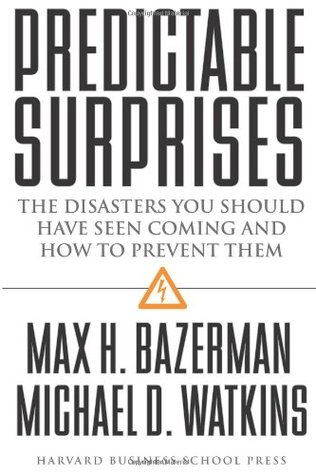For the past five years I have consistently presented evidence to decision makers that South Africa’s municipalities are sitting on a ticking time bomb. Human resource development (HRD) programmes are simply not taken seriously in municipalities, with a persistent management reluctance to take responsibility for HRD outcomes.
Michael Watkins and Max Bazerman liken this to a predictable surprise as indicated in the title of their 2008 book Predictable Surprises: The disasters you should have seen coming, and how to prevent them. This occurs when managers unquestionably had all the data and insight they needed to recognise the potential for, and even the inevitability of a crisis, but failed to respond with preventative actions.

This is what happened in Lebanon recently. For six years the Lebanese government knew of the highly flammable explosives in storage, but elected and appointed officials simply failed to prioritise the matter, which eventually led to human devastation.
As a student of public management, the management functions were drilled into me as PLOC ? to plan, to lead, to organise and to control. This was management in four words. But times have changed. Gone are the days of militaristic command, control and “baaskap” that best describe the South African management style. But if we want the next decade to look any different, we have to re-imagine and re-adjust the role, competence and functions of the manager.
A manager is considered competent when they have knowledge (understand the theories or why of the job), the skills (can demonstrate application of theories) and attitude (this is demonstrated in behaviour that is shaped by beliefs).
The problem in municipalities is the way managers manage. How else do we account for the fact that in many cases those caught with their hands in the cookie jar are, in fact, qualified professionals?
Municipal managers are either sleeping or stealing on the job as confirmed by the latest Auditor General (AG) report. The poor financial governance outcomes of municipalities and the overdependence on consultants to prepare financial statements is a case in point. In many of these cases, managers resist their HRD role that includes the very important aspect of performance management (leading the facilitation of learning, unlearning and relearning of team members to achieve improved individual and organisational performance). And this should be the number one priority of a manager ? creating an enabling learning environment.
During the Covid-19 pandemic, we’ve been told repeatedly that a change in human behaviour (wearing a mask, maintaining social distance and washing/sanitising hands regularly) is considered the best way to fight the deadly virus. And that is exactly what is needed at municipalities. A change in management behaviour.
So how should managers behave in order for municipalities to ensure better HRD outcomes and good municipal governance?
They should unmask
There are too many managers in local government who manage through fear, by bullying and simply by being rude. Although fear may feed your ego, it will stymie team development. It’s time for managers to remove their masks and become human, authentic and real. You don’t have all the answers and it’s okay. We are navigating uncharted waters and it’s time to co-create the future with your team. Covid-19 has fast-tracked the fourth industrial revolution that is in fact a human revolution, resulting in more remote working environments that rely on trusting team members to produce predetermined outcomes.
They should not keep any social distance
Managers need to take a keen interest in the development and growth of team members. We are living in a context where the competence set of three years ago may very well be obsolete today. Effective management creates leadership circles and encourages cross collaboration, strengthening the development of their staff and themselves. We need to make sure that team members as well as management commit to life-long learning. The manager should lead the conversation about performance improvement with consequences for bad behaviour as key. Constant, ongoing individual and team learning will propel the organisation into the future. The manager should coach as well as be open to being coached.
They should get their hands dirty
A senior manager in local government shared with me that some managers are just plain lazy and rely on consultants to do the work they are paid to do. Solving the myriad HRD governance problems, specifically in the post Covid-19 world, requires innovative management that is willing to embrace uncertainty and complexity and refuses to succumb to easy conclusions. This is hard work. Not hard talk. Effective implementation occurs when managers actively engage and work in collaboration with the team. The old adage still rings true: the tone is set at the top! Managers and their teams should work tirelessly to ensure good governance outcomes such as an ethical learning culture, good performance, effective controls and legitimacy.
But I am afraid, municipalities will continue to underperform, unless managers change their behaviour. For this to happen, they will have to change their mindset from “I am my position” (title-focused) to “I am a public servant” (purpose-focused) and one that uses research and evidence-based data to lead, innovate and manage human resources effectively in pursuit of the 2030 national vision of a capable state. There is no greater time than now to make this change.



